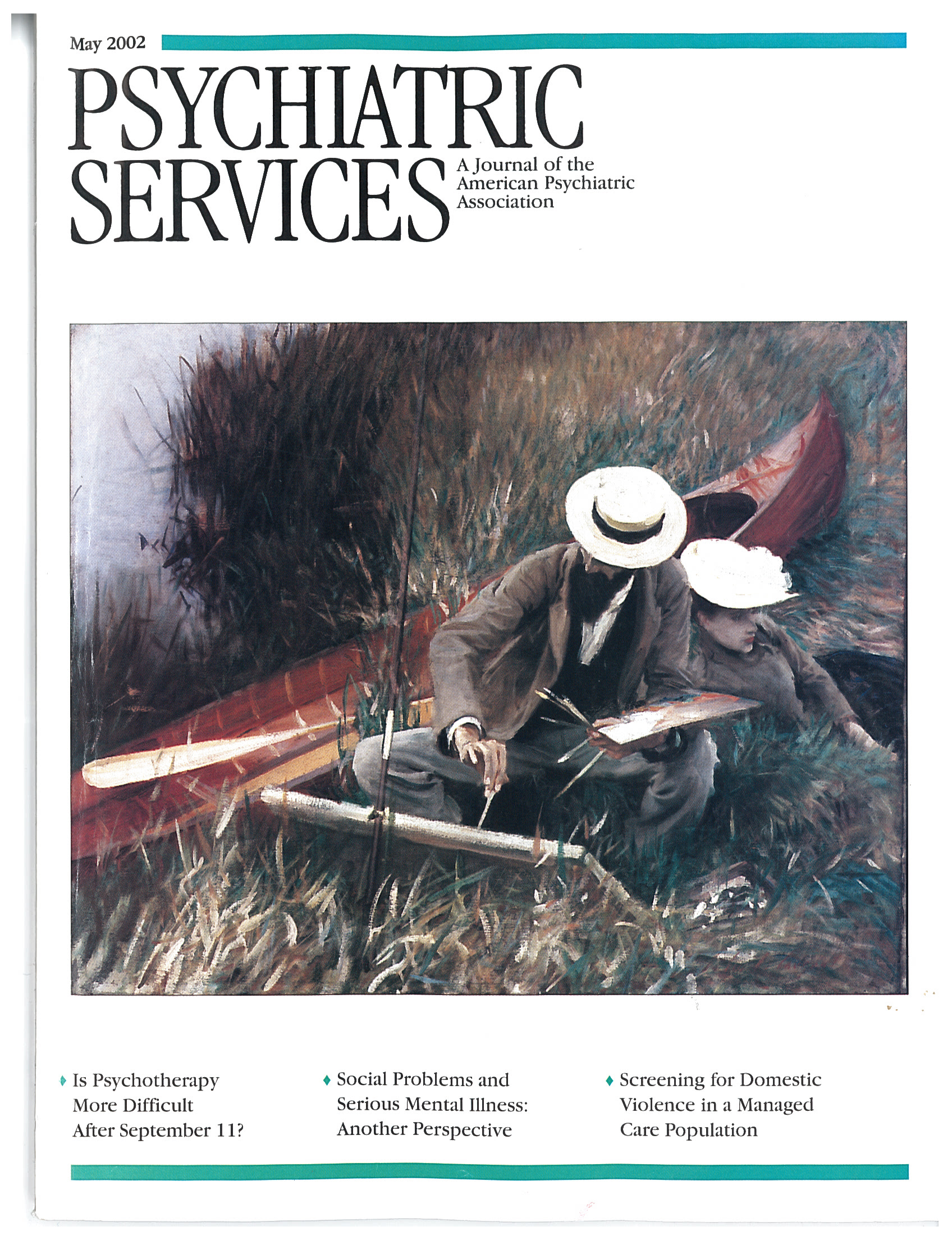A Closer Look at Social Problems and Mental Illness
In this month's issue Jeffrey Draine, Ph.D., and his colleagues attempt to show that poverty is a critical moderator of the relationship between serious mental illness and social problems such as crime, unemployment, and homelessness. "Persons with mental illness experience social problems more frequently," they argue, "because they live in a world in which these problems are endemic, not just because they are mentally ill." They call on mental health researchers to take into account the broader social context in which mental illness is embedded and to examine factors related to poverty. By comparing the experience of persons who have serious mental illness with that of persons in similar socioeconomic situations who are not ill, researchers will find that the impact of mental illness is much smaller than that implied in most of the psychiatric literature. To support this claim, Dr. Draine and his colleagues provide evidence from the work of nonpsyhciatric researchers who have studied the impact of social disadvantage (see page 565). In a commentary, Scott H. Nelson, M.D., contends that the authors fail to show that untreated mental illness is not substantially associated with the social problems experienced by this population (see page 573). Two other commentators, Margaret E. Severson, J.D., M.S.W., and Alice A. Lieberman, Ph.D., note that research on the complex relationships between mental illness and social problems has been under way since 1939 and that the time has come to move forward with solutions instead of repeating the same questions (see Taking Issue, page 507).
Cost-Effectiveness of Combining Psychotherapy and Medication
A group of researchers in Geneva, led by Yvonne Burnand, Ph.D., report the results of a study showing that the provision of supplemental psychotherapy to patients with major depression who were receiving an antidepressant led to better outcomes and was cost-effective. In the ten-week study, 74 outpatients were randomly assigned to treatment with clomipramine alone or clomipramine in combination with psychodynamic psychotherapy. Patients in both groups showed marked improvement. However, those in the combined-treatment group experienced less treatment failure and better work adjustment. Direct costs of treatment for the combined-treatment group were $435 less per patient ($2,976 versus $3,441). Savings in indirect costs—days of sick leave—were much higher—$1,846 per patient (see page 585).
Psychotherapy After September 11
In this month's Practical Psychotherapy column, Marcia Kraft Goin, M.D., Ph.D., notes that after the events of September 11, many patients are looking to their therapists to help them deal with feelings of grief, loss, and vulnerability—feelings that many therapists are experiencing themselves. Dr. Goin discusses ways that therapists can listen and respond empathically and provide a safe harbor for their patients, even as they may struggle with their own shattered sense of security. She urges therapists to share their feelings with colleagues and friends and to seek consultation or treatment when their emotional reactions might interfere with their ability to listen and respond effectively (see page 561).
Treating Depression in Bipolar Disorder
Research and clinical experience have demonstrated the safety and efficacy of antidepressant medications for unipolar depression. However, evidence is accumulating that these medications are associated with a variety of adverse outcomes in the treatment of depression in bipolar disorders. In this month's issue, Rif S. El-Mallakh, M.D., and Anoop Karippot, M.D., review recent data on the use of antidepressants for treating acute depression among patients with type I and type II bipolar disorder. Use of any one of several antidepressants appears to induce mania or hypomania at a rate two or three times the spontaneous rate. In addition, long-term use may destabilize the illness and induce rapid cycling or a chronic irritable dysphoric state. The authors provide general guidelines for the judicious use of antidepressants to treat bipolar depression (see 580).
Briefly Noted…
• When intake workers and clinicians began routine screening for domestic violence among enrollees in a national managed behavioral health organization, they found that 2.3 percent of persons seeking care were in an abusive relationship (see page 555).
• In this month's contribution to the journal's ongoing series by, about, and for psychiatric residents, a research team reports on the use of palliative and aggressive end-of-life care for patients with dementia (see page 609).
• Clinicians and researchers in a suicide prevention program at a large urban jail describe characteristics of inmates who attempt suicide and interventions to prevent such attempts (see page 574).

